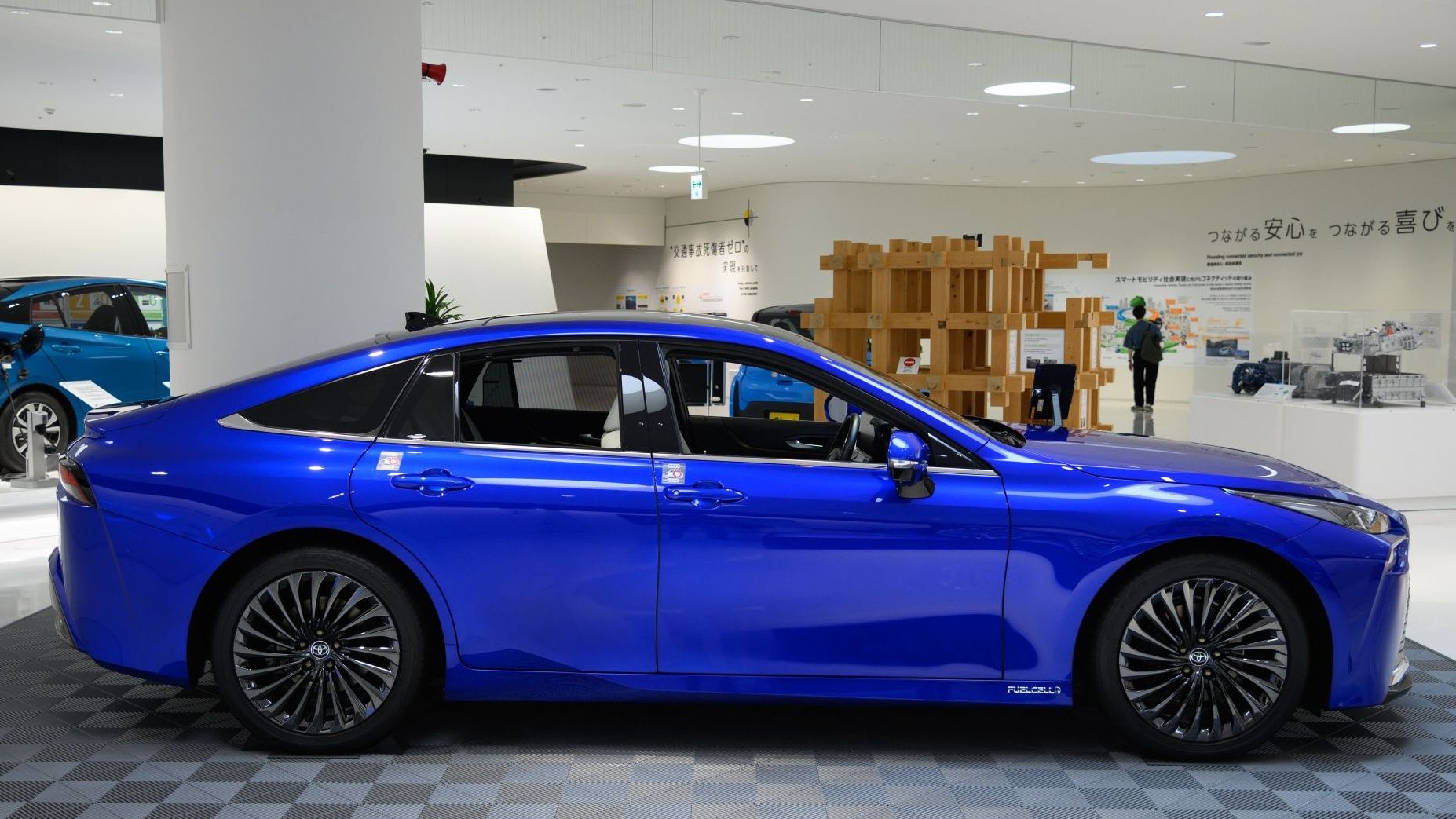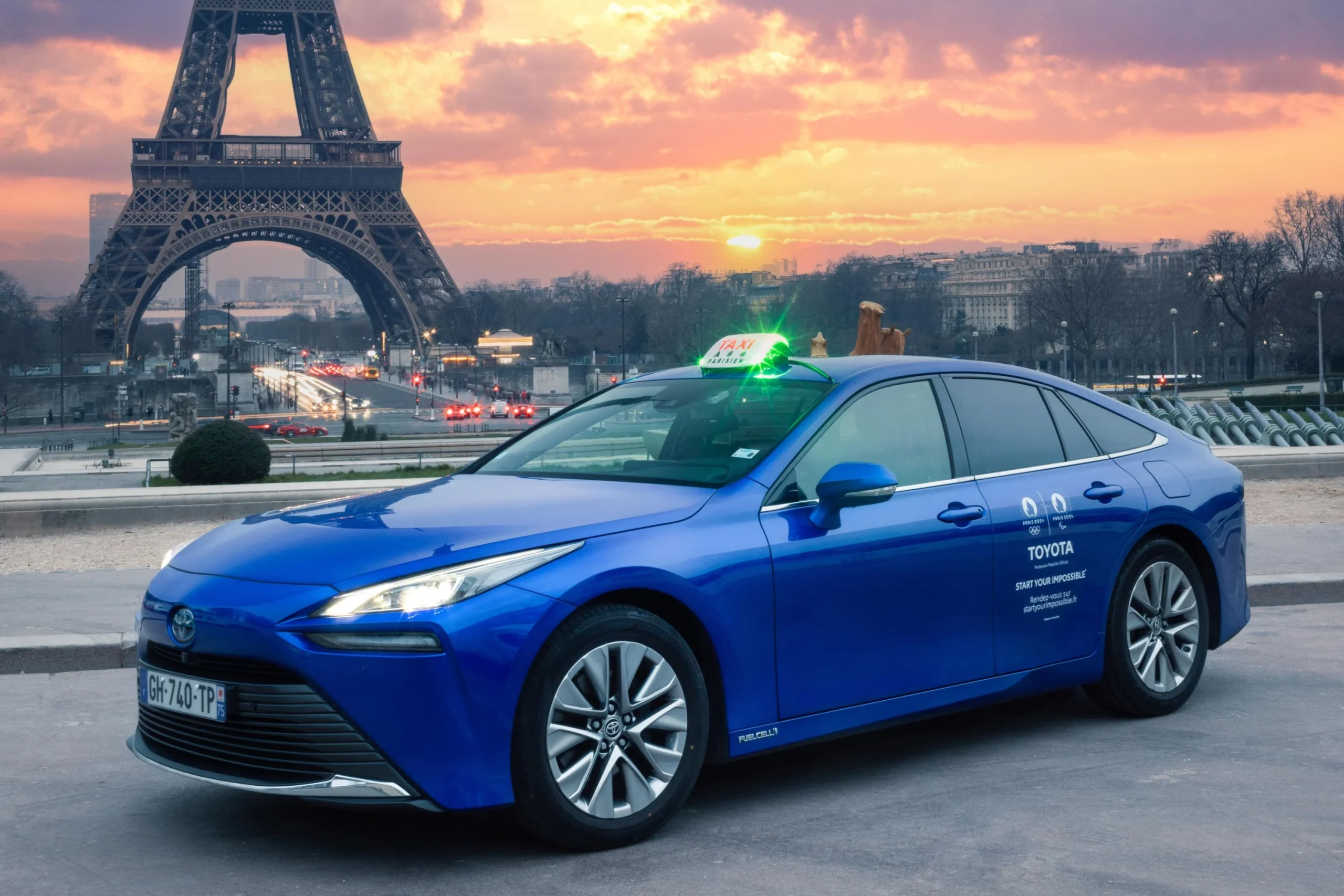The Toyota Mirai, a hydrogen fuel-cell vehicle (FCEV), has come under scrutiny from scientists for failing to meet true zero-emissions standards. An open letter signed by over 120 scientists and engineers, led by the Centre for Sustainable Road Freight (CSRF), has urged the organizers of the 2024 Paris Olympic Games to replace the Mirai with battery electric vehicles (BEVs). The letter argues that hydrogen-powered cars like the Mirai are inconsistent with net-zero goals and could harm the reputation of the Games, urging the International Olympic Committee (IOC) to adopt BEVs exclusively.
A major concern highlighted in the letter is that the majority of hydrogen currently produced, known as grey hydrogen, is derived from fossil fuels like methane without carbon capture. This process results in significant emissions, making the Mirai less sustainable than it appears. Even green hydrogen, which is produced using renewable energy, is criticized for requiring three times the renewable electricity needed for BEVs. This inefficiency drives higher costs and necessitates greater infrastructure investment, further supporting the scientists’ preference for BEVs.

Toyota’s partnership with the Olympic Games includes a fleet of 1150 BEVs, 10 hydrogen fuel-cell coaches, and 500 Mirais. While the inclusion of BEVs aligns with sustainability goals, critics argue that the Mirai undermines these efforts due to its reliance on grey hydrogen. Additionally, global hydrogen production remains largely fossil-fuel-based, with emissions comparable to the aviation industry. The letter also points out that hydrogen vehicles are in global decline, with high costs and limited infrastructure deterring widespread adoption. Toyota’s own data suggests hydrogen cars will account for virtually none of its production by the end of the decade.
This criticism is not isolated to the Mirai’s Olympic role. Environmental groups like Greenpeace and the Climate Council have accused Toyota of lagging behind in its transition to BEVs and lobbying against pro-EV policies. The scientists behind the letter stress that adopting an all-BEV fleet for the Olympics would better reflect the IOC’s commitment to sustainability. They argue that promoting hydrogen vehicles risks delaying the more effective and widely supported adoption of BEVs for decarbonizing passenger transport.
The challenges facing hydrogen vehicles extend to the broader market. In California, a leading hub for FCEVs, Shell recently closed its hydrogen refueling stations, reducing the number of operational sites to fewer than 50. Sales of the Mirai in the U.S. have plummeted, even with heavy rebates. Meanwhile, BEV sales have surged globally, with millions sold each year. In countries like Australia, hydrogen vehicle sales are negligible compared to record-high BEV adoption. These trends highlight a growing consensus that hydrogen cars are not a practical or sustainable solution for achieving net-zero emissions.

